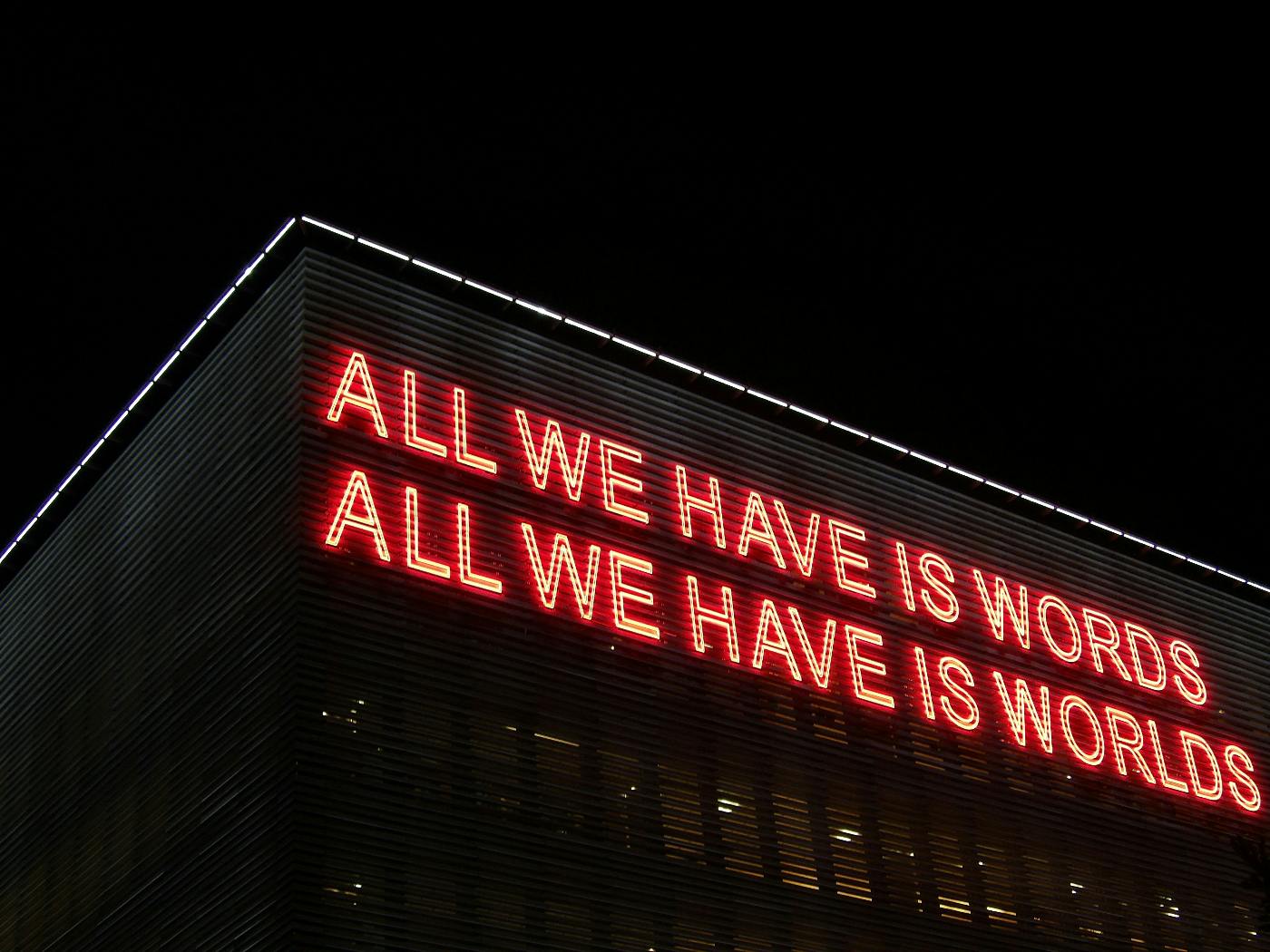
Yet, amidst the sea of catchy slogans and viral campaigns, there's a deeper layer often overlooked—the role of intelligence and a rich vocabulary in crafting truly impactful brand messages.
There’s a thing coming up: politics, people, and whatnot. It’s pretty big and significantly impacts this country and even the world. That’s news. You’d think with such weight on the event, reporters would dust off the ol’ thesaurus and give us some juicy words to paint some great pictures of this monumental event. Sadly, that’s not so.
Despite the gravity of situations these days, we seem to be recycling the same terms: bonkers, unhinged, whacko, and the like—words that best describe cartoon characters and not world leaders. On top of that, there still seems to be a particular bias against intelligence. Not sure what that’s all about.
It’s got me thinking: does the repetition of catchphrases like bonkers, unhinged, and shying away from intelligence have a place in branding and marketing, or should brands rise above those false limitations and strive for more?
I think it’s a good question, and since I’m writing this blog, that’s what we’ll explore today.
Words Matter
In the world of marketing and branding, words matter. They're not just tools for communication but powerful instruments that shape perceptions, evoke emotions, and ultimately influence consumer decisions. Yet, amidst the sea of catchy slogans and viral campaigns, there's a deeper layer often overlooked—the role of intelligence and a rich vocabulary in crafting truly impactful brand messages.
Attitude Toward Intelligence: Why So Serious?
Intelligence has a bit of an image problem, doesn't it? From the schoolyard to the boardroom, it's often portrayed in ways that don't quite capture its full potential. Picture the stereotypes: the nerdy kid with glasses buried in books, the brainiac who can't catch a break because they're too busy solving puzzles, or the know-it-all who's more annoying than admirable.
In popular culture, intelligence can sometimes take a backseat to trends like being effortlessly cool or endlessly trendy. It's as if being smart is somehow less desirable than having the latest gadget or the hippest fashion. But in the world of branding, intelligence isn't just about having a high IQ or rattling off impressive facts. It's about something deeper—a nuanced understanding of human behavior, a keen ability to read between the lines of consumer preferences, and a knack for foreseeing trends before they become mainstream.
Imagine a brand that doesn't just follow the pack but sets the pace. That's where intelligence comes into play. Brands that succeed in today's fast-paced market aren't just lucky—they're smart. They understand that intelligence isn't about showing off; it's about using insights to connect with consumers on a deeper level. It's about crafting messages that resonate because they're not just catchy—they're meaningful.
In the realm of branding, intelligence is a secret weapon. It's what allows brands to anticipate shifts in consumer sentiment, pivot strategies ahead of the competition, and build lasting relationships based on trust and understanding. It's the difference between a fleeting trend and a timeless icon, between being trendy today and being relevant for years to come.
So, why is there a severe attitude toward intelligence? Perhaps it's time to rethink what it means to be smart in branding. It's not about being the brainiest in the room; it's about using intelligence to create something truly remarkable—a brand that not only speaks but listens, follows but leads, and survives but thrives in an ever-changing marketplace.

The Power of Words: Moving Beyond the Ordinary
In the cacophony of marketing buzzwords, authenticity stands out like a beacon in the night. It's easy to get lost in a sea of "innovative," "disruptive," and "game-changing," but what truly distinguishes effective branding is the ability to use language that goes beyond the superficial and resonates deeply with consumers.
Think about it—everyone claims to be "innovative," but how many genuinely embody it in their brand identity? Take Apple, for example. Their minimalist approach to design isn't just about simplicity; it's a testament to their commitment to sophistication and exclusivity. From their sleek product designs to their carefully curated marketing language, every word speaks volumes about their brand ethos. When Apple says "Designed in California," it's not just a geographical statement—it's a declaration of craftsmanship and innovation that resonates with consumers worldwide.
Similarly, Nike's iconic slogan, "Just Do It," isn't just a tagline; it's a rallying cry. It encapsulates the spirit of determination and empowerment, inspiring athletes and everyday individuals alike to push beyond their limits. The genius of "Just Do It" lies in its simplicity and universality. It speaks directly to the inner athlete in all of us, urging action and perseverance without needing elaborate explanations.
Effective branding, therefore, isn't about stuffing your messaging with trendy buzzwords—it's about using words that convey meaning and evoke emotion. It's about understanding your audience on a deeper level and using language that aligns with their values and aspirations. Brands that master this art of authentic communication not only attract customers but cultivate loyal advocates who resonate with their message.
In a world where attention spans are fleeting and choices abound, the power of words cannot be overstated. Whether crafting a compelling tagline, writing a persuasive ad copy, or shaping a brand narrative, every word matters. It's not just about what you say—it's about how you say it and the impact it creates.
So, when you think about branding, think beyond the buzzwords. Embrace language that speaks authentically to your audience, resonates with their hearts and minds, and sets your brand apart in a crowded marketplace.
Case Studies in Brilliance: Brands That Get It Right
- Tesla: Beyond electric cars, Tesla sells a vision of the future. Its use of technical language isn't just to sound smart—it's to position itself as a pioneer in sustainable technology, appealing to environmentally conscious consumers who value innovation.
- Patagonia: Known for its commitment to sustainability, Patagonia's brand voice isn't just eco-friendly—it's educated and passionate. Their campaigns educate consumers about environmental issues while subtly reinforcing their brand values of quality and responsibility.
- Dove: Dove's "Real Beauty" campaign revolutionized beauty standards by challenging conventional norms. Their use of inclusive language and intelligent messaging didn't just resonate—it sparked a global conversation about self-esteem and authenticity.

The Humor Factor: Why Wit Works
Intelligence doesn't have to be serious. In fact, some of the most influential brands use humor to convey intelligence and connect with their audience on a deeper level. Take Old Spice, whose absurd yet hilarious commercials not only entertain but subtly communicate their brand message of confidence and masculinity.
Smart Moves in Branding
As we've seen, intelligence and a robust vocabulary are not just tools for academics—they're essential assets in branding. By understanding the power of language and embracing a thoughtful, intelligent approach to messaging, brands can elevate their narratives, engage more deeply with consumers, and ultimately stand out in a crowded marketplace.
Summing Up
In today's hyper-connected world, where every brand vies for attention and consumer loyalty is increasingly elusive, the ability to communicate authentically and intelligently is more valuable than ever. Relying on flashy ads or catchy slogans is not enough; consumers crave substance, meaning, and authenticity. Brands that invest in cultivating a rich vocabulary and leveraging insights gained through intelligence are better equipped to build lasting connections with their audience.
Imagine a brand that speaks directly to your aspirations, understands your needs before you articulate them, and anticipates trends before they become mainstream. This isn't just wishful thinking—it's the hallmark of brands that embrace intelligence as a cornerstone of their strategy. Whether it's through insightful storytelling, nuanced messaging, or innovative campaigns, these brands don't just sell products—they create experiences, foster communities, and shape cultural conversations.
As we look to the future of branding, one thing is clear: the role of intelligence and language will only grow in importance. Brands that dare to be different, challenge conventions, and push boundaries with their vocabulary and insights will survive and thrive in an ever-evolving landscape. They will set the standard for authenticity and innovation, inspiring others to follow suit.
So, let's raise a toast to the power of words, the brilliance of intelligence, and the limitless possibilities they offer in shaping effective branding. As you embark on your own branding journey, remember: it's not just about what you say—it's about how you say it, who you say it to, and the lasting impression it leaves behind.
Here's to intelligent moves in branding—may your words be sharp, your insights profound, and your impact lasting.
ThoughtLab Branding
At ThoughtLab, we embody smart branding by meticulously crafting narratives that resonate on a profound level. We understand that intelligence and language are not just tools but the cornerstone of impactful communication. By leveraging a rich vocabulary and keen insights into consumer behavior, we create authentic brand experiences that stand out in a competitive market.
Our approach goes beyond buzzwords; it's about fostering genuine connections, inspiring action, and shaping narratives that endure. ThoughtLab believes in the transformative power of words and intelligence, ensuring every brand we touch tells a compelling story that captivates hearts and minds.

